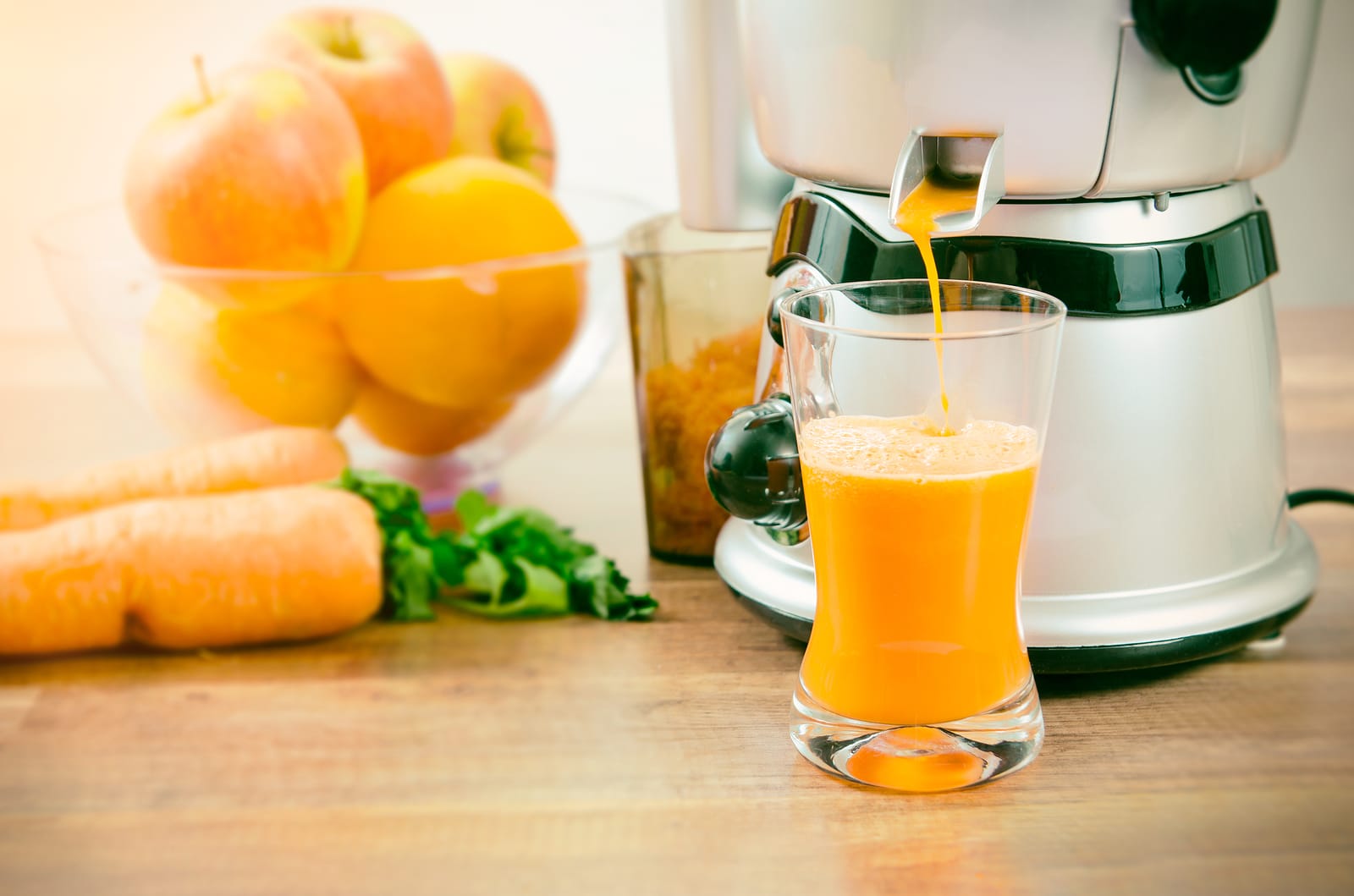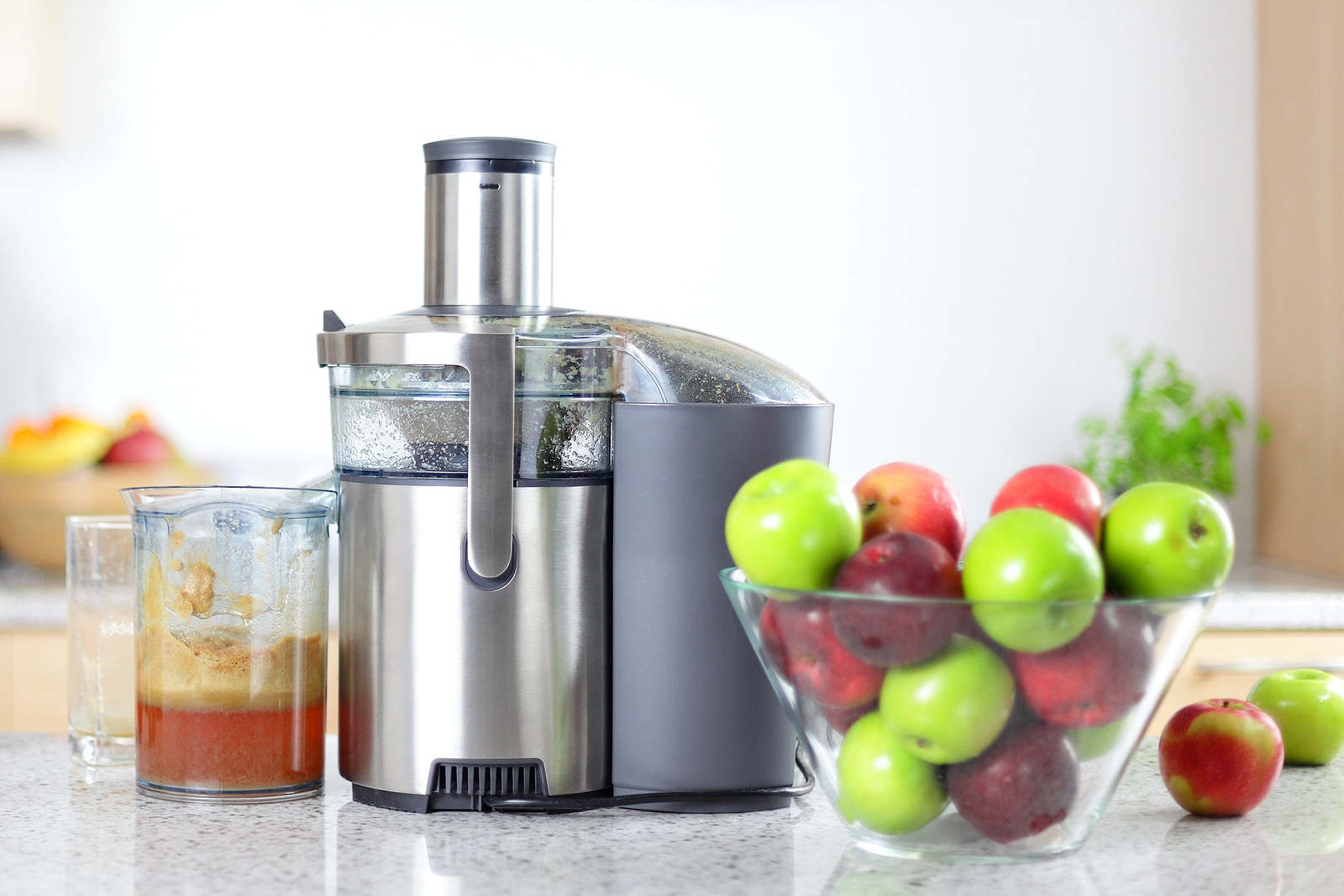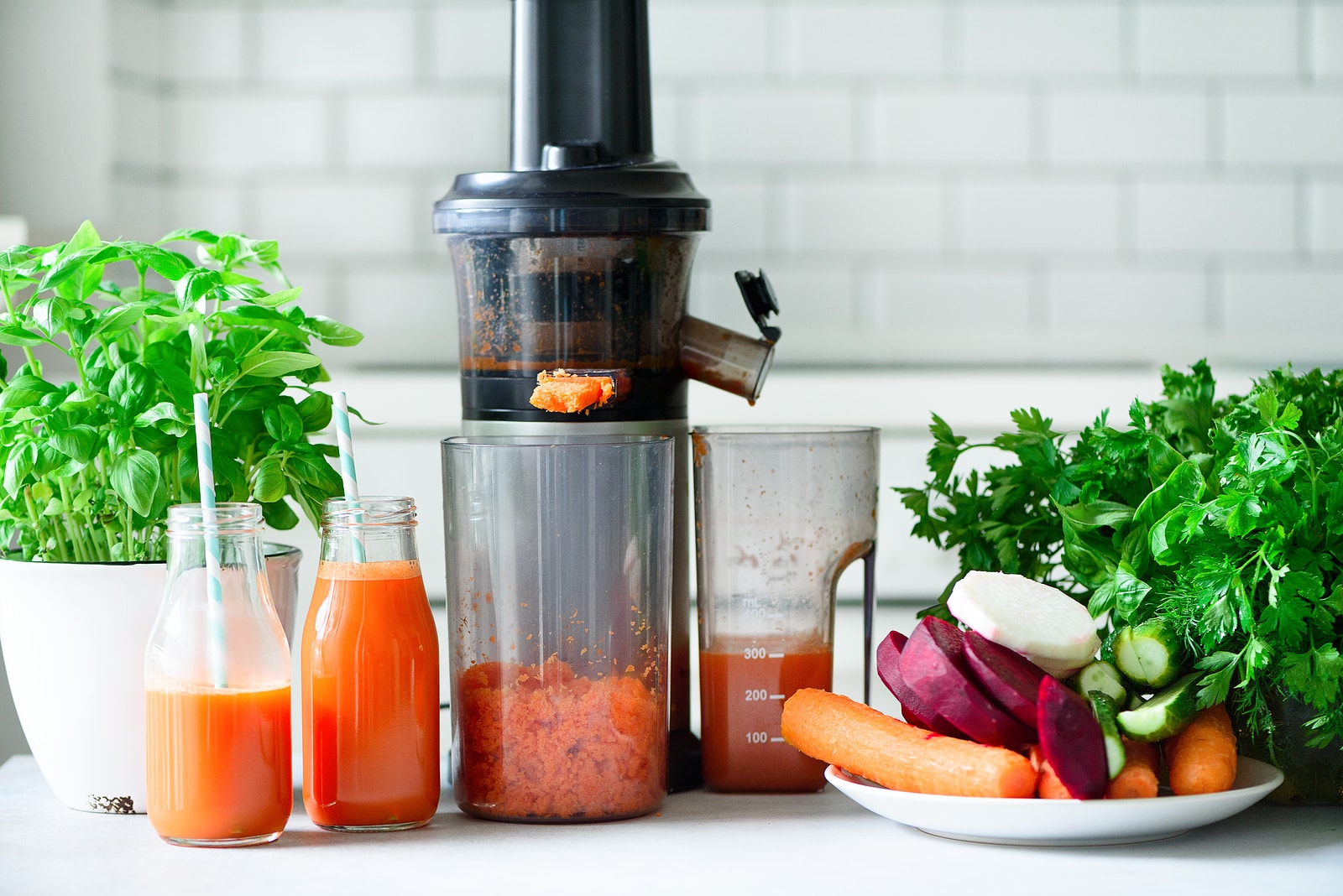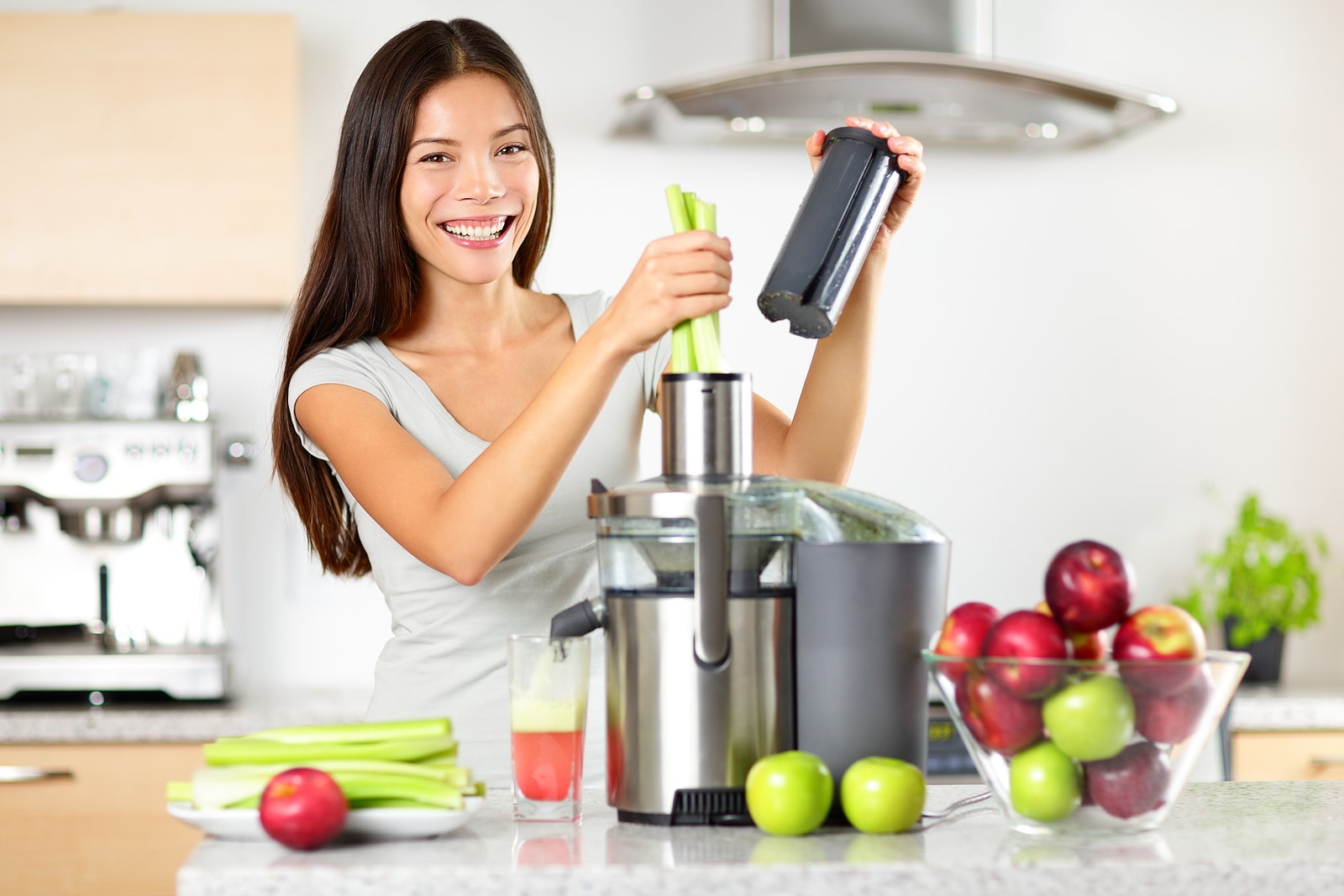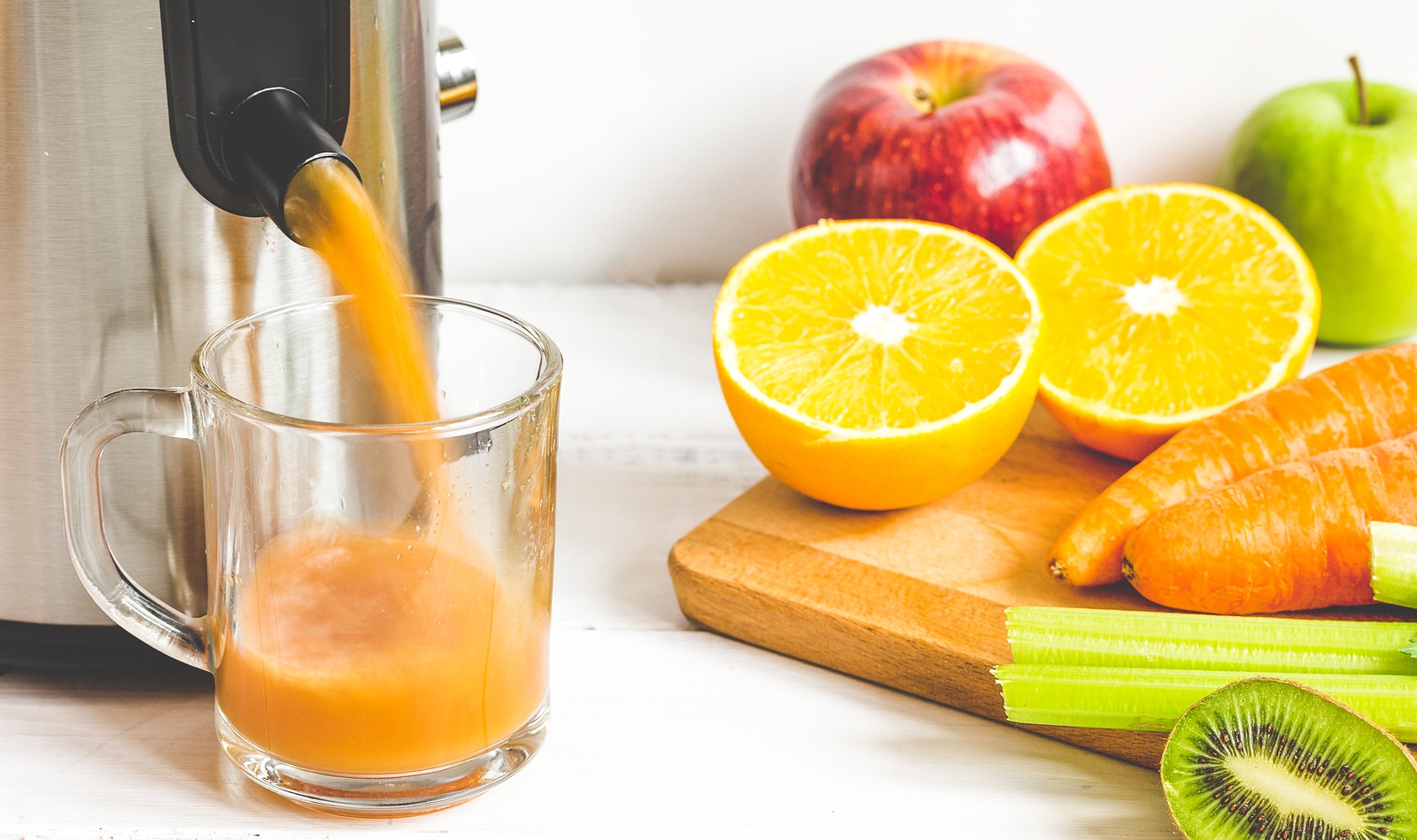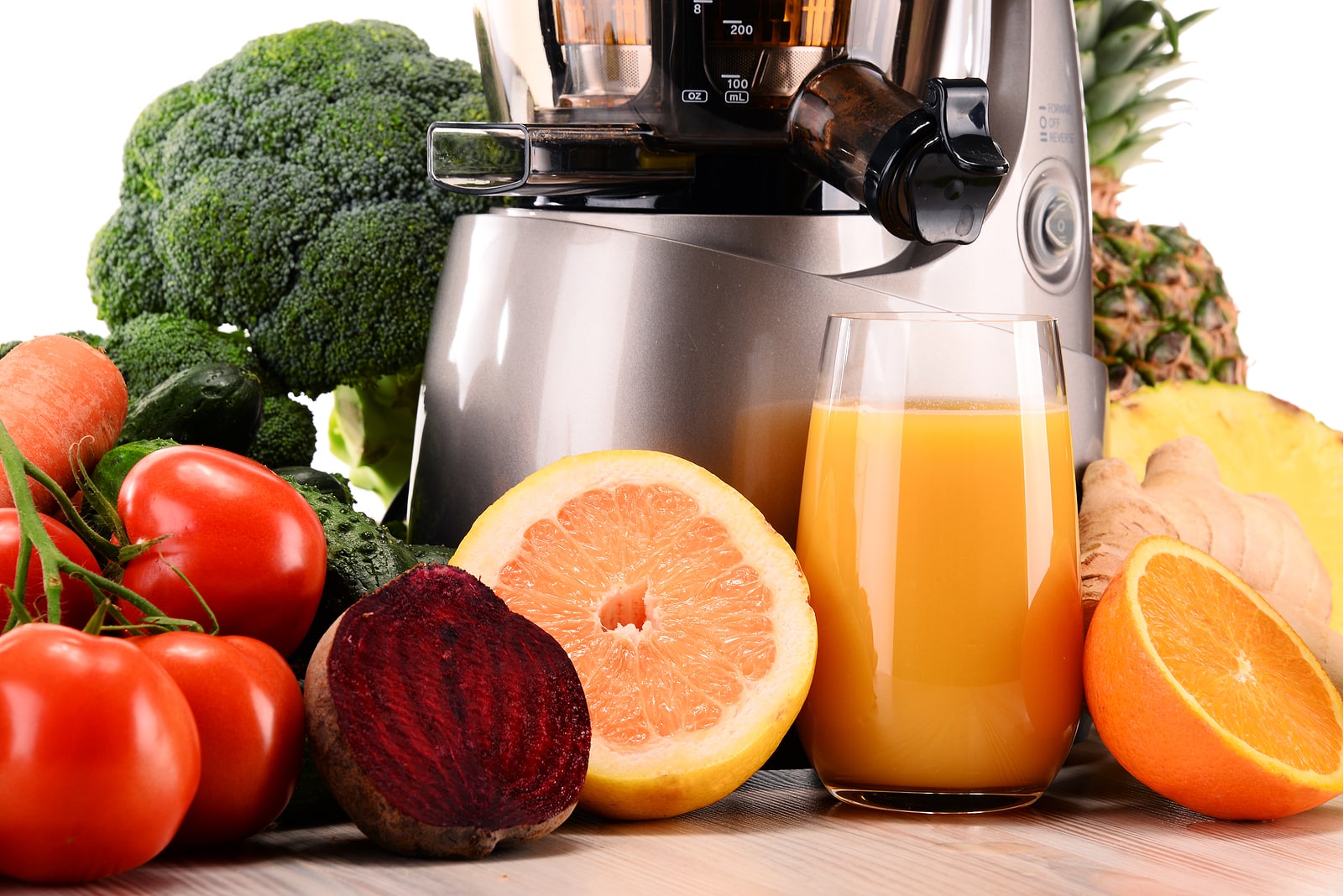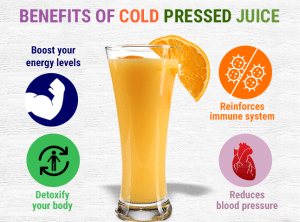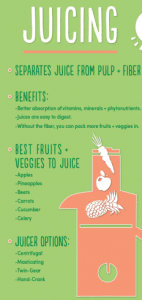Juicing has become increasingly popular as people seek to incorporate more fruits and vegetables into their diets. With a wide variety of juicers available in the market, it can be challenging to determine which one is the best fit for individual needs. This article provides a comprehensive review of the best juicers, offering valuable insights and recommendations.
Juicers play a crucial role in promoting a healthy lifestyle by enabling individuals to extract fresh juice from fruits and vegetables. Whether it’s for a morning boost or a post-workout refreshment, having a reliable juicer can make a significant difference in one’s daily routine. In this review, we aim to provide an unbiased analysis of the top juicers available in the market, considering various factors to help consumers make informed decisions.
Types of Juicers
Juicing has become a popular way to incorporate a variety of fruits and vegetables into one’s diet, providing a convenient and efficient means of obtaining essential nutrients. When it comes to juicing, there are several types of juicers available, each offering unique features and benefits. Understanding the differences between these juicer types is essential in making an informed decision when selecting the most suitable option. In this article, we will explore the various types of juicers, including centrifugal juicers, masticating juicers, and citrus juicers, highlighting their characteristics and functionalities to help individuals choose the best juicer for their specific needs.
Centrifugal Juicers
Centrifugal juicers are among the most common and widely recognized types of juicers, known for their high-speed extraction process. These juicers operate by using a rapidly spinning blade to shred fruits and vegetables, extracting the juice through centrifugal force. One of the primary advantages of centrifugal juicers is their speed, making them ideal for individuals who value convenience and efficiency. They are particularly effective in juicing hard fruits and vegetables such as apples, carrots, and beets, producing fresh juice in a matter of seconds.
However, it’s important to note that centrifugal juicers may not be as effective when it comes to juicing leafy greens and softer produce. Additionally, while they excel in speed, they tend to produce lower juice yields compared to other types of juicers. The high-speed extraction process may also lead to some degree of oxidation, potentially impacting the overall nutrient retention and quality of the juice. Despite these limitations, centrifugal juicers remain a popular choice for those seeking quick and convenient juicing without compromising on taste.
Masticating Juicers
Masticating juicers, also known as slow juicers or cold press juicers, operate at lower speeds compared to centrifugal juicers, offering a more deliberate and methodical approach to juice extraction. These juicers utilize a slow, grinding or chewing mechanism to crush and squeeze fruits and vegetables, resulting in higher juice yields and better preservation of nutrients. Masticating juicers are highly versatile and can effectively juice a wide range of produce, including leafy greens, wheatgrass, and even nuts for making nut milk.
One of the key advantages of masticating juicers is their ability to produce juice with superior quality and nutrient retention. The slow and gentle extraction process minimizes heat buildup, reducing the risk of oxidation and preserving the natural enzymes and nutrients present in the produce. This results in a higher-quality juice that boasts enhanced flavor, vibrant color, and a longer shelf life. Additionally, masticating juicers are known for their quiet operation, making them suitable for individuals who prefer a more peaceful juicing experience, especially in shared living spaces.
While masticating juicers excel in juice quality and nutrient retention, they are generally slower in comparison to centrifugal juicers. The slower extraction process requires more time and patience, which may not be ideal for those seeking quick and on-the-go juicing. Furthermore, masticating juicers typically come with a higher price point due to their advanced technology and superior performance. However, for health-conscious individuals and avid juicers who prioritize the quality and nutritional value of their juice, a masticating juicer is often considered a worthwhile investment.
Citrus Juicers
Citrus juicers are specifically designed for extracting juice from citrus fruits such as oranges, lemons, limes, and grapefruits. These juicers are tailored to accommodate the unique characteristics of citrus fruits, featuring a reamer or cone-shaped mechanism to effectively extract the juice while separating the seeds and pulp. Citrus juicers are simple to use and are perfect for individuals who enjoy fresh citrus juices or use citrus juice in cooking and baking.
One of the key benefits of citrus juicers is their efficiency in extracting juice from citrus fruits, producing fresh and flavorful citrus juices with minimal effort. Their straightforward design and operation make them an excellent choice for those who have a preference for citrus-based beverages and recipes. Citrus juicers are available in both manual and electric models, offering flexibility in terms of usage and portability. They are also relatively affordable and easy to clean, making them a practical addition to any kitchen, especially for those who regularly incorporate citrus fruits into their culinary endeavors.
However, it’s important to recognize that citrus juicers are specifically tailored for citrus fruits and may not be suitable for juicing other types of produce. While they excel in juicing citrus fruits, they are not designed to handle the wide variety of fruits and vegetables that centrifugal and masticating juicers can accommodate. As such, individuals seeking a more comprehensive juicing experience that includes a diverse range of produce may find citrus juicers to be limited in their functionality. Nevertheless, for those who have a specific preference for citrus-based juices and recipes, a citrus juicer offers a practical and efficient solution for obtaining fresh citrus juice with ease.
Criteria for Evaluating Juicers
When it comes to choosing the right juicer, several key factors should be considered to determine its overall performance, functionality, and suitability for individual preferences. Evaluating juicers based on specific criteria can provide valuable insights and help consumers make informed decisions when selecting the most suitable option for their juicing needs. In this article, we will explore the essential criteria for evaluating juicers, including juice quality, ease of cleaning, durability, noise level, and price, offering a comprehensive guide to assist individuals in making well-informed decisions when investing in a juicer.
Juice Quality
One of the most critical aspects of evaluating a juicer is the quality of the juice it produces. The overall juice quality encompasses various factors, including taste, texture, color, and most importantly, nutrient retention. A high-quality juicer should be capable of extracting juice that retains the natural flavors and nutritional value of the fruits and vegetables being juiced. The extraction process should effectively preserve essential vitamins, minerals, and enzymes, ensuring that the resulting juice is rich in nutrients and offers optimal health benefits. Additionally, the juice should exhibit a vibrant color and fresh taste, reflecting the high-quality produce used in the juicing process. Evaluating a juicer’s performance in terms of juice quality involves assessing the taste, texture, and nutrient content of the resulting juice to ensure a satisfying and nutritious juicing experience.
Ease of Cleaning
The ease of cleaning is another crucial factor to consider when evaluating juicers. A juicer that is easy to disassemble, clean, and reassemble can significantly impact the overall juicing experience, making it more convenient and sustainable for regular use. Consumers should look for juicers that feature removable components that can be easily rinsed or washed, minimizing the time and effort required for cleaning after each use. Dishwasher-safe parts can further enhance the cleaning process, offering added convenience and efficiency. A juicer with a streamlined design and minimal crevices or hard-to-reach areas can also simplify the cleaning process, ensuring that maintenance is hassle-free and manageable. By prioritizing ease of cleaning, individuals can maintain a hygienic and well-maintained juicer that is ready for use whenever needed, promoting a seamless and enjoyable juicing experience.
Durability
The durability of a juicer is a fundamental consideration that directly impacts its long-term reliability and performance. A high-quality juicer should be built to withstand regular use and maintain its effectiveness over time. Durable construction materials, such as stainless steel or high-grade plastics, contribute to the overall robustness and longevity of the juicer. Components such as the juicing mechanism, motor, and housing should be designed to withstand the mechanical stress and friction associated with juicing various fruits and vegetables. Furthermore, a reliable juicer should be equipped with sturdy and well-constructed parts that can endure the rigors of juicing without succumbing to premature wear or damage. By prioritizing durability, consumers can invest in a juicer that offers long-term value, dependable performance, and consistent juicing results, ensuring a reliable and enduring addition to their kitchen appliances..
Noise Level
The noise level produced by a juicer during operation is a consideration for many individuals, particularly those who value a quieter juicing experience, especially in shared living spaces. Centrifugal juicers, known for their high-speed extraction process, tend to produce more noise compared to masticating juicers, which operate at lower speeds. Evaluating the noise level of a juicer involves considering the decibel level generated during operation and the impact it may have on the overall juicing experience. Consumers may prioritize juicers with quieter operation to minimize disruptions and create a more comfortable environment, especially during early morning or late-night juicing sessions. While noise level is a subjective consideration, it is an important factor for individuals seeking a more peaceful and unobtrusive juicing experience.
Price
The price of a juicer is a practical consideration that influences the purchasing decision for many consumers. While budget constraints may play a significant role in the selection process, it’s essential to balance the price of the juicer with its overall value and quality. Higher-priced juicers often feature advanced technology, superior performance, and durable construction, offering long-term reliability and enhanced juicing capabilities. On the other hand, more affordable juicers may provide basic functionality and adequate performance for casual juicing needs. Evaluating the price of a juicer involves considering its features, performance, and durability in relation to the budget and intended frequency of use. By carefully assessing the price and value proposition of a juicer, consumers can make an informed investment that aligns with their specific requirements and expectations.
Top Picks for Juicers
Best Juicer Overall: Omega NC800HDR Nutrition System Juicer
The Omega NC800HDR Nutrition System Juicer is widely acclaimed as the best juicer overall, offering exceptional performance and versatility for juicing a wide variety of fruits and vegetables. This masticating juicer is designed to extract juice while preserving the natural nutrients and enzymes present in the produce, making it a popular choice among health-conscious individuals and juicing enthusiasts.
Best Slow Juicer: Hurom’s H-AI Slow Juicer
Hurom’s H-AI Slow Juicer has earned the title of the best slow juicer, owing to its innovative design and advanced features. This juicer utilizes a unique self-feeding hopper, which can hold multiple ingredients at once, reducing the need for manual feeding and streamlining the juicing process. The slow squeezing technology minimizes heat buildup and oxidation, resulting in nutrient-rich, vibrant juices with superior taste and extended shelf life.
Best Juicer less than $100: Hamilton Beach 67650A Juicer
his centrifugal juicer offers impressive juicing capabilities, featuring a powerful motor and a large feed chute for convenient juicing of whole fruits and vegetables. Its budget-friendly price, coupled with efficient juice extraction and easy cleanup, makes it an attractive choice for individuals looking to embark on their juicing journey without breaking the bank.
Best Juicer for $150: Breville JE98XL Juice Fountain Plus
This centrifugal juicer boasts a robust 850-watt motor and a patented extraction system, delivering high-speed juicing without compromising on quality. Its extra-wide feed chute allows for quick and effortless juicing of large produce, while the dual-speed control enables users to customize their juicing experience based on the type of ingredients being processed.
Best Citrus Juicer: Hurom Citrus Juicer
When it comes to citrus juicers, the Hurom Citrus Juicer has emerged as the best choice for extracting fresh citrus juices with efficiency and simplicity. This dedicated citrus juicer is designed to handle a variety of citrus fruits, including oranges, lemons, and grapefruits, providing an effortless juicing experience. Its compact and user-friendly design, combined with its ability to extract maximum juice with minimal effort, makes it an ideal companion for those who enjoy citrus-based beverages and recipes.
| Juicer Model | Pros | Cons |
|---|---|---|
| Omega NC800HDR Nutrition System Juicer | – Exceptional nutrient retention – Versatile functionality for various produce – Quiet operation – Durable construction |
– Higher price point – Slower juicing process |
| Hurom’s H-AI Slow Juicer | – Innovative self-feeding hopper – Slow squeezing technology for nutrient-rich juices – Minimal oxidation – User-friendly design |
– Relatively higher cost – Limited to slow juicing |
| Hamilton Beach 67650A Juicer | – Affordable price point – Powerful motor – Large feed chute for whole fruits – Easy to clean |
– Louder operation – Less effective for leafy greens |
| Breville JE98XL Juice Fountain Plus | – High-speed juicing – Dual-speed control – Extra-wide feed chute – Efficient performance |
– Not as effective with leafy greens – Potential for higher oxidation |
| Hurom Citrus Juicer | – Efficient extraction of citrus juices – User-friendly design – Compact and easy to store – Affordable |
– Limited to citrus fruits – Not suitable for other produce |
Conclusion
In conclusion, the process of selecting the ideal juicer is highly individualized and dependent on a multitude of factors, including personal preferences, lifestyle, and specific juicing requirements. For individuals who prioritize speed and convenience, a centrifugal juicer may emerge as the most fitting option, given its ability to swiftly extract juice from various fruits and vegetables. The rapid juicing process and ease of use associated with centrifugal juicers make them particularly appealing for those with busy schedules or limited time for juicing.
Conversely, individuals who place a premium on superior juice quality and maximal nutrient retention are likely to find that a masticating juicer aligns more closely with their juicing aspirations. The deliberate and methodical approach of masticating juicers, characterized by their slow extraction speed and gentle processing, results in juices that boast enhanced flavor, vibrant color, and prolonged shelf life. Moreover, the nutrient-rich nature of the juices produced by masticating juicers appeals to health-conscious individuals who prioritize the nutritional value of their beverages.
Ultimately, the quest for the best juicer is a deeply personal endeavor, guided by an individual’s distinct set of requirements and desires. The optimal juicer is one that seamlessly integrates into the user’s lifestyle, elevating their juicing experience and facilitating the attainment of their juicing goals. Whether it’s the pursuit of efficiency and speed or the unwavering commitment to exceptional juice quality and nutrient preservation, the selection of the best juicer is a pivotal decision that can significantly impact an individual’s daily routine and overall well-being. By carefully evaluating the unique features and benefits of different juicer types, individuals can make an informed choice that harmonizes with their specific needs and enhances their journey into the world of juicing.
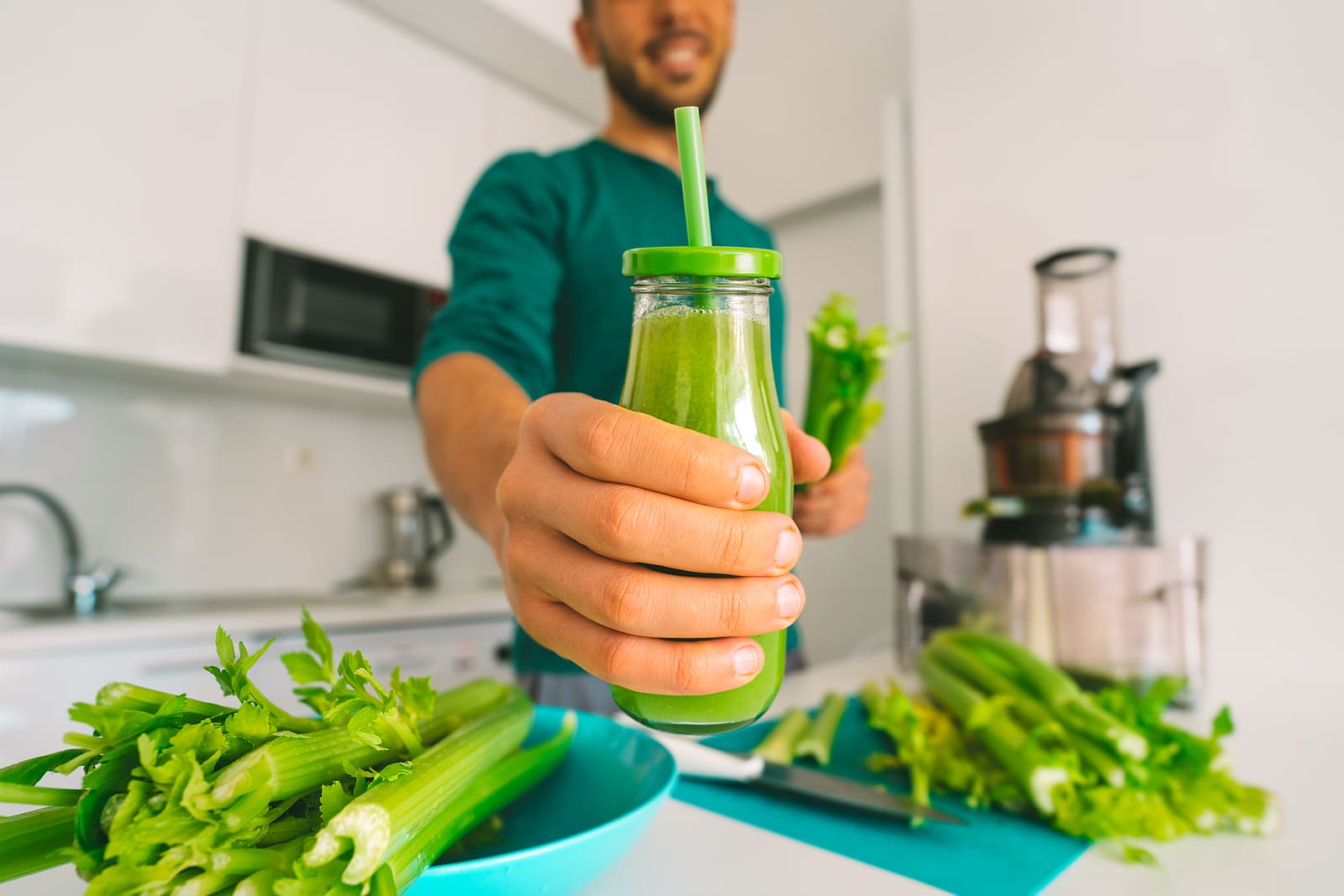
Frequently Asked Questions
Can a masticating juicer handle leafy greens effectively?
A: Yes, masticating juicers are designed to efficiently juice leafy greens, yielding high-quality green juices.
Are citrus juicers suitable for juicing other types of fruits and vegetables?
A: Citrus juicers are specifically tailored for citrus fruits and may not be suitable for juicing other types of produce.
How can I reduce the noise level of a centrifugal juicer?
A: Placing a dampened cloth or towel beneath the juicer can help dampen the noise during operation.
What is the average lifespan of a high-quality juicer?
A: With proper maintenance, a high-quality juicer can last for several years, providing reliable performance.
What is the recommended maintenance routine for juicers?
A: Regular cleaning, proper storage, and following the manufacturer’s maintenance guidelines can help prolong the lifespan of a juicer.
Juicer Product Review
In simple terms, juicing refers to the process of extracting juice from fruits and vegetables. The modern juicing trend usually refers to centrifugal juicers, which push fruits and vegetables through a feed tube and into a chamber where the juicers grind them. The juice moves through a tube and into a pitcher, while the pulp is left behind.
Masticating juicers are also popular. These machines work more slowly and require you to cut up the fruits and vegetables before juicing them due to the smaller feed tube diameter, but they tend to extract more juice from each item. They often produce juice with more pulp than centrifugal juicers.
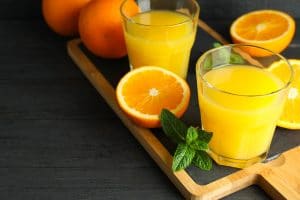
Best Juicers
Want to know the best juicers? See video below.
Cold Pressed Juice
What are the benefits of a cold pressed juice? See image below.
Juicing
Learn more about juicing. See below.

